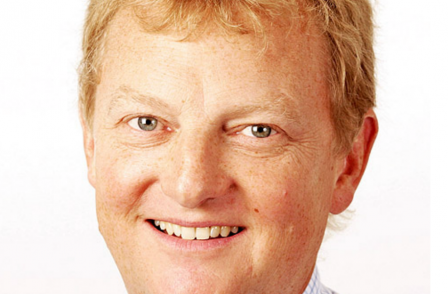
Times foreign editor Richard Beeston has died of cancer aged 50.
Beeston had been with The Times since 1986 and had been foreign editor since 2008.
Writing in The Times today Ben Macintyre said that Richard Beeston “embodied the best of newspaper journalism: passionate but balanced, determined to see for himself, never foolhardy but spectacularly brave.”
The Times notes notes that Beeston was one of the first reporters to make his way to Halabja, the Kurdish village in northern Iraq where Saddam Hussein bombed the civilian population with chemical weapons killing 5,000 in March 1988.
He flew in on an Iranian military helicopter and later recalled (The Times reports): “The most poignant memory of that day was a father in traditional Kurdish dress lying dead at the entrance to his home cradling a baby. Those who survived were arguably worse off. Hundreds had been hit by mustard gas that burnt their eyes and lungs but did not kill them. Victims of this slow and painful poison are still dying of their injuries to this day.
“Even by Saddam’s ruthless standards the massacre broke new boundaries. Yet what was more shocking was the cynical response of the West. The US attempted to blame this crime on Iran. Britain carried on business as usual with the regime in Baghdad. Saddam was shielded from any meaningful punishment.”
According to The Times obituary: “What Beeston saw there never left him. It strengthened the strong moral element in his reporting of evil around the world and reinforced his belief that Western countries should never appease dictators but should confront totalitarianism with force if necessary. It also made him eager to follow through the tragedy of Iraq under Saddam.”
The Times was the only British national newspaper to maintain a continuous reporting presence throughout the first five years after the Western invasion of Iraq war (2003-2008) and Beeston was on the rota of correspondents.
He began his journalism career after taking an NCTJ course at Harlow in Essex after leaving school and his first job was on the Coventry Evening Telegraph. He worked in South Africa as a reporter for the Financial Mail in Johannesburg and then, at 21, worked on the Daily Star in Beirut during the Lebanese civil war.
After two years covering the conflict he was offered a job by The Times.
As Moscow correspondent for The Times he covered the uprising in Chechnya reporting (The Times notes) “from the front line, dodging Army censors, moving among Chechen fighters who were as bloodthirsty as the terrified Russian recruits blindly firing off weapons at them”.
He was diagnosed with prostate cancer five years ago and bore the disease “with extraordinary fortitude”, the Times reports. He travelled to Iraq and later Syria in between courses of chemotherapy and continued working as foreign editor “almost to the end”.
Acting Times editor John Witherow said: “Richard Beeston has been one of the great foreign editors of The Times.
“He continued to show his sense of humour, superb judgment and love of life right to the end.”
Beeston’s father Dick was also a distinguished foreign correspondent. He is survived by his wife Natasha and son and daughter.
Email pged@pressgazette.co.uk to point out mistakes, provide story tips or send in a letter for publication on our "Letters Page" blog
